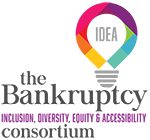Interview with Sandra S. Yamate, CEO of The Institute for Inclusion in the Legal Profession
“We need to talk about all types of diversity in all types of practice settings all over the country. You can’t advance one group if all the others are mired and being held back. We’re either going to move forward as a whole profession or we’re not.”
Please tell me a little bit about yourself and your path.
After law school, I came to Illinois to practice. One reason was because I love Chicago. However, during my second summer of law school I clerked for a law firm in Honolulu where I got to see Asian Americans who’d made so many strides that weren’t even on the radar back in Illinois. A large part of my reasoning for coming back to Illinois was that I wanted to practice there to help advance my community.
When I came back, like a lot of people, I went to a large law firm, but it wasn’t really a place where I could do all of the things I wanted to do professionally. I left and went to a small minority owned firm. That had different advantages, but also different disadvantages.
What was the impetus for The Institute for Inclusion in the Legal Profession?
I ultimately found that my true passion wasn’t in the day-to-day practice of law. It was in a lot of things related to the legal profession and lawyers, but it wasn’t actually practicing law. I left practice to focus on community work and activism. One day I got a call from friends saying the Chicago Committee on Minorities in Large Law Firms was looking to hire an executive director. I spent 3 years in that role. After that the American Bar Association reached out to me. They liked what I had been doing locally and asked me if I wanted to do that work nationally. I spent 10 years as the ABA’s Director for the Commission on Racial and Ethnic Diversity in the Profession.
Later, some friends challenged me to take all of my complaints about the way the profession did or did not address its lack of diversity and, for fun, write a proposal on what I thought the right organization would look like. After I had written it, I took it to Marc Firestone, who was general counsel for Kraft Foods at the time. Before I could get home from that meeting, Marc took that idea to Kraft’s CEO. Kraft decided to support it. Marc was our first Chairman of the Board. John Mathias, with Jenner & Block, loved the idea and he got them to give us pro bono legal services. Another friend from Baker McKenzie helped us get startup funding from the firm, and Terry Murphy (who was with the Chicago Bar Association) incubated us and provided us with office space. We in turn, provided them with programmatic support.
What does having support like that mean to the work of diversity, equity, and inclusion?
It speaks to the fact that, even today, there are lots of lawyers in the profession who are truly interested in seeing it become more diverse and inclusive. However, they’re frustrated because they are busy practicing law, and they do not have the luxury to stop and think about what an organization should be doing, and what it’s going to take to move the needle.
If you can give them a solid case for why a different approach, a different strategy, or different programs might have some traction—I think they’re willing to try it and invest in it. What gets frustrating is when you see the profession continuing doing the same things [as it related to diversity, equity, and inclusion] and then, wonder why they’re not getting a better result.
What could we do in the profession to see better results as it pertains to DEI?
We need to be willing to ask ourselves a lot of hard questions, and to challenge assumptions that we have about who we are and how our profession is structured. I think it’s outrageous that ours remains one of the professions that is the least diverse in the United States. When you consider the role that lawyers play, not only as practicing lawyers who represent clients, but also as legislators, government leaders, civic and community leaders—it’s appalling when you think about how much the profession is lacking in diversity. It makes you think about how much more good could be done.
Some of the things we’ve tried to do at the Institute for Inclusion in the Legal Profession is making our approach different from traditional efforts. We focus more on inclusion as opposed to just diversity because it’s about everybody in the profession. It’s not just about trying to advance some groups over others. It’s about making the profession better. We always emphasize what we call, the supply side over the demand side so that we’re not waiting for some corporate clients to shake their finger at outside law firms—telling them to be more diverse. Instead, we focus on what we can do to make this profession more hospitable to diverse individuals so that anyone with the talent, or aptitude, or ambition, or determination can enter it and rise as high within it as those abilities will permit.
We also think it’s important to recognize that we can’t just be anecdotal. We do a lot of research trying to show the profession what things might be missing or how things might be done differently.
Can you say more about the belief that DEI is about quotas, or merely diversifying the pipeline before selecting a candidate?
The pipeline is important because if you don’t have an ample pool from which to choose, you’re going to be limited. However, it’s a mistake to think that the legal profession is based on a meritocracy. We have been conditioned and trained to think it’s a meritocracy, but in reality, some people have had advantages in their lives that other people have not.
What has happened is that we’ve become a profession of elites. There are those of us who’ve had the opportunity to pursue higher education—those who come from families that gave us the privilege of being able to attend school without having to worry about working to support ourselves and helping to support the family. We’ve had the advantage of being able to afford test preparation programs so that we would do better on the SAT or ACT, and the LSAT. All of those things impact who is able to get into this profession and who’s able to succeed. That’s not to say that we haven’t had individuals who have been able to enter the profession even if they didn’t have those opportunities. However, it was so much harder for them; and there might be other brilliant, talented individuals who—for whatever reason—were not able to get into the profession.
We need to understand that this [disparity] exists, and therefore, ours is not a profession that is a meritocracy.
What do you think the current state of DEI is in the profession right now?
I think there is a much keener appreciation for it, a much stronger desire for it, and much greater attention is being paid to it. What I’m not sure about is the degree to which the profession is willing to conduct some very hard self-examination to actually achieve inclusion.
What do you see as the barriers to achieving inclusion?
That it’s hard.
It’s hard because it will require sustained efforts. There’s no silver bullet. It’s hard because it is going to require individual lawyers to make changes in their values—in the way they do things and the way they look at the world. Change can sometimes feel very disruptive and frightening. It’s also hard because you have a lot of well-meaning individuals who don’t take the time to truly educate themselves about what’s actually going to have an impact.
We can’t be afraid of discussing hard issues or asking tough questions. There can’t be any topics that are taboo. We need to talk about these things and sometimes that means being willing to have fulsome and robust discussions with people who disagree with us—because as lawyers—if we can’t make a strong enough argument…shame on us.
Sandra S. Yamate earned her AB in Political Science (cum laude) and History (magna cum laude) from the University of Illinois at Urbana Champaign where she was elected to Phi Beta Kappa. She received her JD from Harvard Law School.
You can learn more about The Institute for Inclusion in the Legal Profession by visiting their website at theiilp.wildapricot.org.
Article by Aja Carr Favors

